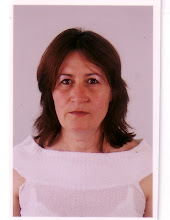-PG-KTS
2161, PRAVETS
SOFIA
BULGARIA
HEADMASTER
Trifonov Trifon
TEACHER
TSOLOVA TSETSA
Tsetsa Tsolova (PG-KTS)/ Anders Svensson (Domarhagsskolan)/
Titolo: “The Impact of ICT on Young People”
Durata: Un anno scolastico
Breve descrizione: Develop students awareness on ethical, democratic and gender-related issues arising from the use of ICT Give teachers extended insight into the impact of ICT on students´ life and, thus, enhance the possibilities of adopting teaching methods and content to students´ conditions. Make extended use of student ICT knowlege in everyday education. Facilitating the understanding between two EU cultures and languages.
Lingua: English
Età degli studenti: Da : 14 A : 19
Chi partecipa?: Dalla scuola A: Insegnanti con studenti Dalla scuola B: Insegnanti con studenti
Raggruppamenti disciplinari: Educazione civica, religione ed etica, filosofia
Sistema educativo e pedagogia
Lingue straniere
Storia e tradizioni
Informatica /TIC
Lingua e letteratura
Matematica e scienze
Strumenti utilizzati: Chat
Forum
Altri software (PowerPoint, video, foto e disegni)
Videconferenza
Ambienti di apprendimento virtuale (comunità, aule virtuali …)
Pubblicazione su Web
email
Obiettivi: During the last decade, ICT has changed society in an unprecedentedly rapid and revolutionary way. Young people are at an increasing speed exposed to opportunities, temptations, threats, news et cetera, et cetera. They also find it natural to share their innermost thoughts with a world-wide audience. Easily available game-sites allegedly contribute to the decline of students´ academic performance. Students´general health is also said to have been afflicted by too much time in front of the computer. Most teachers are left behind and have, to a higher degree than before, become uncomprehensing on-lookers at students´ life – just realizing that great parts of it takes place in Cyber Space. This faces the educational system with new challenges: How to meet students on their home ground? How do we succeed in integrating into the new ICT world the over-all objective of schools to implant in students sense of justice, generosity, tolerance and responsibility? How do students come to grips with theories of value and moral dilimmas that encounter them on the internet? We want to give students an opportunity to become aware of, reflect on and discuss ethical, democratic and gender-related issues arising from the use of ICT at the same time as general skills will be improved among partners – students as well as teachers. Teachers will benefit from this project by getting increasingly aquainted with what is going on in students out-of school lives, thus making it possible to adjust syllabus and curriculum approach to the demands of the fast changing present. At the same time as we assume that life in Cyber Space is similar whether approached from Sweden or Bulgaria, our aim is also to learn about life, traditions, culture and other ex-ICT phenomenae in each other´s country. This is where the linguistic aspect will have be introduced: Learning little spread languages like Swedish and Bulgarian via English
Piano di lavoro : Students´attitudes to ICT development will be of a critical kind. They will be able to apply insights on democracy, gender equality and sense of justice when dealing with the increasing amount of impressions they are exposed to in ICT media as well as in every-day situations. Teachers will have found ways to use student ICT experience in class-room activities and discovered more about the importance of ICT to students – knowledge that will enable them to make new approaches to teaching methods. Partnership participants will have gained extended understanding of general life conditions, cultural expressions, traditions and achieved basic knowledge of the reciprocal target language. A basic English-Bulgarian-Swedish phrase-book will be electronically available.
Prodotti degli studenti: Students/Teachers at all institutions will be assigned an area that is in accordance with their interests. These groups will be responsible for research, communication, the compiling of questionnaires, interviews, comparison results between all schools and, of course, the presentation of final results/products.
Altre scuole partecipanti al progetto: Tsetsa Tsolova (PG-KTS)
Anders Svensson (Domarhagsskolan)
Carin Segerström (EU IT Gymnasiet)
pasquale carrieri (scuola secondaria di 1 grado "A.CHIONNA"diLIZZANO(TA)-ITALY)
Hans-Göran Palmqvist (Östrabo Yrkes)
Louise Östling Arsenio (John Bauergymnasiet)
Subscribe to:
Post Comments (Atom)


No comments:
Post a Comment